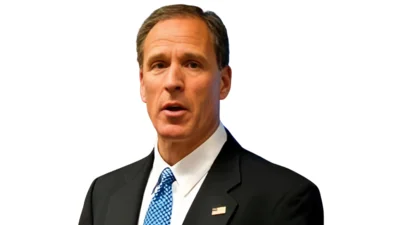Julie Hernandez-Tomlin Commissioner Department of Fleet and Facility Management (2FM). | LinkedIn
Julie Hernandez-Tomlin Commissioner Department of Fleet and Facility Management (2FM). | LinkedIn
Mayor Brandon Johnson issued a proclamation this morning declaring June 24-28 as "Chicago Workers’ Rights Week" to highlight upcoming labor law changes. These changes, including an increased minimum wage, the first increase in the sub-minimum wage, and a new City of Chicago Paid Time Off policy, will take effect on Monday, July 1.
“Working people need to know their new rights. On July 1, we are taking the first step towards a Chicago that treats its workers with the respect and dignity that they deserve,” said Mayor Brandon Johnson. “All workers deserve to make at least the minimum wage and workers should not have to choose between their lives and their livelihoods. These historic changes will further make Chicago the best place to work in the country and a city that uplifts its workers and working families.”
Mayor Johnson is scheduled to attend a panel discussion on Tuesday, June 25 with the Raise the Floor Alliance and a labor trainee event with LiUNA Laborers’ Local 1001 on Wednesday, June 26, to continue raising awareness about these important changes.
“The mayor’s Paid Time Off policy and the One Fair Wage ordinance are common-sense and long overdue steps forward for working people,” said Deputy Mayor of Labor Relations Bridget Early. “Chicago has long been a leader in worker’s rights, and under Mayor Johnson, we will continue to implement policies that guarantee the safety and well-being of all workers. I look forward to working with labor unions, worker organizations, and City officials to ensure every worker in our city is aware of their workplace rights and protections.”
Every July 1, Chicago’s minimum wage increases per the Minimum Wage Ordinance. Since reaching $15 per hour in 2021, it increases annually according to changes in the Consumer Price Index or by 2.5%, whichever is lower.
Under the Johnson Administration, the historic One Fair Wage Ordinance was passed by the Chicago City Council in October 2023. This legislation phases out the subminimum wage for tipped workers over five years. It provides for wages of tipped workers such as restaurant servers, bartenders, bussers, and runners who currently earn $11.02 per hour to increase by 8 percent per year until reaching parity with Chicago’s standard hourly minimum wage on July 1, 2028.
The Chicago City Council also passed the Chicago Paid Leave and Paid Sick and Safe Leave Ordinance (Paid Time Off policy) on November 9, 2023. This ordinance guarantees up to five days of paid vacation time and five days of paid sick time for all Chicago workers who work at least 80 hours within any 120-day period – doubling guaranteed paid time off for Chicago’s workers.
For more information on Chicago’s labor laws including informational fliers, Frequently Asked Questions (FAQs), and public notices visit Chicago.gov/Labor Standards.
###






 Alerts Sign-up
Alerts Sign-up